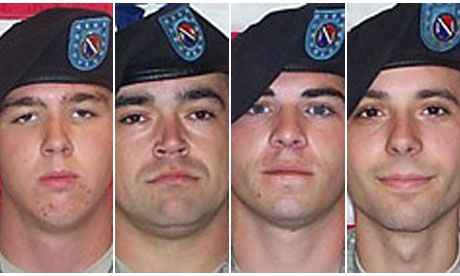By Polly Johnson
Impunity Watch Reporter, Africa
CONAKRY, Guinea – Ten people have been killed and more than two hundred injured in the violent aftermath of a contentious presidential election in Guinea.
Authorities declared a state of emergency after three days of street violence and imposed an overnight curfew until disputes over the election results are resolved.
The National Independent Electoral Commission reported late Monday that Alpha Conde had won Guinea’s presidential election, receiving 52.5 percent of the 2.89 million ballots cast in a runoff. Cellou Dalein Diallo, his opponent, received 47.5 percent.
Mr. Diallo alleged massive voter fraud and has challenged Mr. Conde’s win in the Supreme Court.
A police officer said that the state of emergency would remain in place until the election results were officially confirmed by the Supreme Court. The Court has eight days to rule on the preliminary results from the time they are published.
Despite Mr. Diallo’s calls for calm, his supporters took to the streets, fighting with security forces and even destroying homes of many members of the Malinke ethnic group, to which Mr. Conde belongs. Mr. Diallo’s supporters are primarily from the Peul ethnic group.
Violence erupted in the neighborhoods of Hamdallaya, Bambeto, Cosa, and Simbaya, all of which are primarily Peul communities. “Shooting and targeted arrests are continuing,” a resident of Koloma told Reuters.
On Tuesday, interim Prime Minister Jean More Dore blamed Mr. Diallo’s supporters for the violence and described them as hooligans. Mr. Diallo blamed the security forces for inflicting “savage brutality” upon his supporters.
The United Sates also denounced the post-election violence. “The United States condemns the violent clashes between rival political supporters in Guinea following the Nov. 15 announcement of the provisional presidential election results,” State Department spokesman Philip Crowley said. “Such incidents have no place in the democratic society that Guinea aspires to become.”
The election marked an end to fifty-two years of authoritarian rule – the country’s first democratic election since independence from France in 1958.
But violence and delay have overshadowed the process since the first round of elections in June.
“The situation is very tense in Guinea,” West African analyst Adam Gaye said. “You have really a legacy of military rule and of violence that will be very difficult to fix . . . Conde has appealed to the defeated side to announce that it’s necessary to build a national reconciliation government.”
For more information, please see:
Al Jazeera – Guinean military declares emergency – 17 November 2010
BBC – Guinea declares state of emergency after poll clashes – 17 November 2010
New York Times – Guinea: Presidential Winner is Declared – 15 November 2010
Reuters – Guinea government declares state of emergency – 17 November 2010
Wall Street Journal – US Denounces Post-Election Violence in Guinea – 17 November 2010


